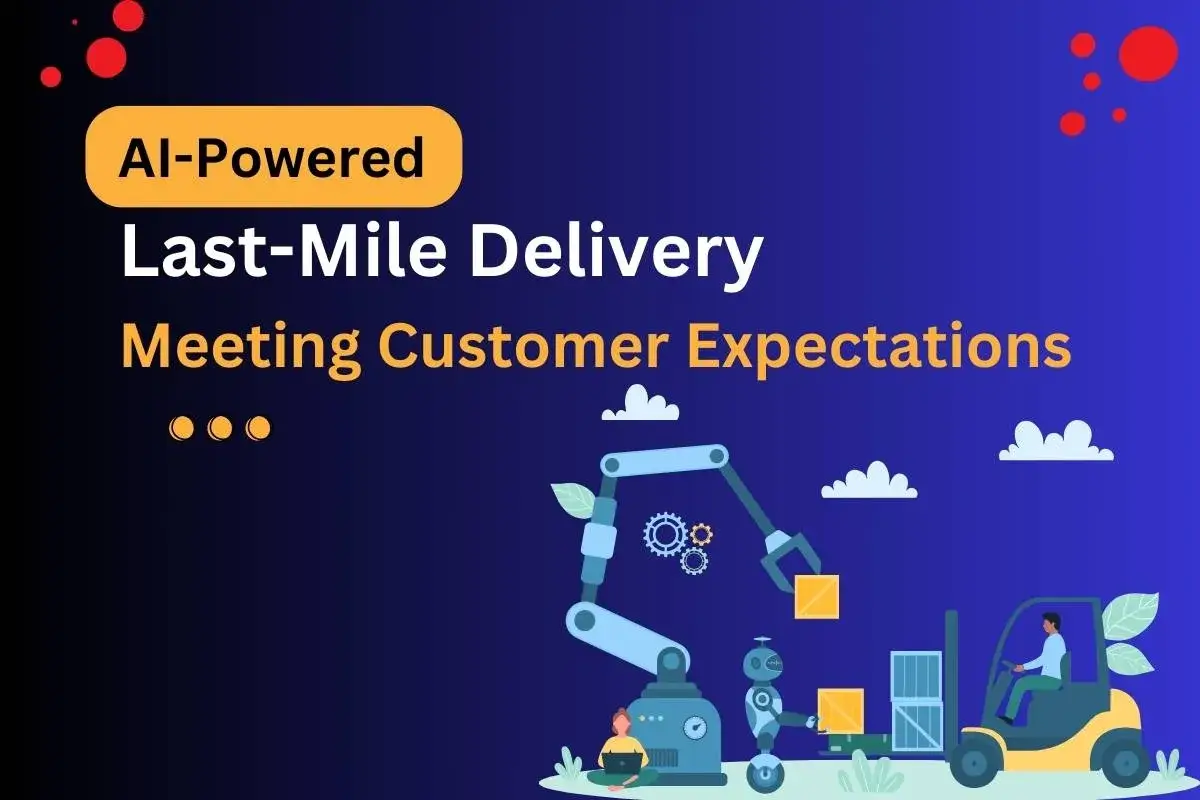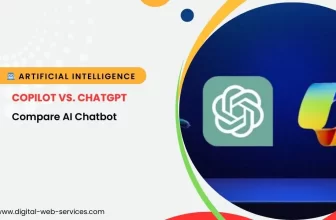
The realm of e-commerce and logistics is constantly evolving, and the last mile of delivery has emerged as a significant battleground for businesses that aim to meet the ever-increasing expectations of customers. The need for prompt and dependable deliveries has skyrocketed, prompting companies to look to artificial intelligence (AI) as a means of transforming the last-mile delivery process. In this article, we will delve into how AI-powered last-mile delivery is changing the landscape of the logistics industry and, more significantly, how it is playing a pivotal role in meeting and surpassing customer demands.
Challenges of Last-Mile Delivery
Last-mile of delivery poses numerous challenges for businesses:
Customer Expectations:
In the present day, customers have come to expect prompt and dependable deliveries. Not only does meeting these expectations provide an edge over competitors, it is also critical for preserving customer loyalty. As such, it is imperative for businesses to prioritise the timely and reliable delivery of their products.
Increased operational Costs:
The delivery process can be significantly impacted by the challenges associated with the last mile. Inefficient route planning, fuel costs, and labour expenses can all contribute to increased expenses, thereby reducing the overall profitability of logistics operations. It is crucial for businesses to optimise the last mile to minimise costs and improve efficiency, which can have a significant impact on the bottom line.
Traffic and Congestion:
Traffic congestion and unpredictable commuting patterns can have a significant impact on the delivery of goods, leading to delays and creating operational challenges. Such challenges can impede timely and efficient delivery of goods, which can be detrimental to businesses.
Negative environmental Impact:
The escalating environmental impact of last-mile delivery has emerged as a pressing concern in recent times. The upsurge in delivery vehicles has led to traffic congestion and air pollution, triggering businesses to explore sustainable and eco-friendly solutions.
AI in Last-Mile Delivery
The integration of artificial intelligence offers a transformative solution to address the challenges posed by last-mile delivery. By leveraging advanced algorithms, machine learning, and real-time data analysis, businesses can optimise their delivery routes, accurately predict delivery times, and improve operational efficiency. This technology has the potential to revolutionise the delivery process and overcome the limitations of traditional methods. Examples include:
Route Optimisation:
AI algorithms are capable of analysing a vast array of data points, ranging from historical delivery data to traffic patterns and even weather forecasts. By leveraging such data, these algorithms can optimise delivery routes, thus reducing travel time and minimising fuel consumption, which ultimately lowers operational costs. The use of AI in logistics management can lead to more efficient and cost-effective operations, which is especially critical in today’s highly competitive business landscape.
Predictive Analytics
The utilization of AI-powered predictive analytics has enabled businesses to accurately anticipate demand, formulate well-informed inventory plans, and allocate resources in an effective manner. By obtaining an in-depth comprehension of customer behaviour and preferences, companies can strategically position their inventory, thereby minimising the need for last-minute rushes and emergency deliveries. This approach to inventory planning not only enhances operational efficiency but also leads to a considerable rise in customer satisfaction.
Dynamic Routing:
Real-time data enables dynamic routing adjustments, facilitating the delivery of goods and services with minimal delays. In the event of unexpected traffic or road closures, AI algorithms can promptly recalculate the route, ensuring that deliveries remain on schedule. The ability to make real-time adjustments based on data-driven insights is a crucial aspect of efficient logistics management, enabling businesses to optimise their supply chains and enhance customer satisfaction.
Automated Vehicles:
Recent advancements in AI and robotics have propelled the prospect of autonomous delivery vehicles into the realm of possibility. With the aid of technology, drones and self-driving vans have the potential to further streamline last-mile delivery, a process that has long been associated with high labour costs and inefficiencies. The integration of automation in the delivery process has the potential to increase efficiency, reduce labour costs, and improve the overall reliability of the delivery process. These developments have significant implications for businesses that rely on supply chain management, as they can lead to increased profitability and customer satisfaction.
Meeting Customer Expectations with AI
By harnessing the power of AI, businesses have been able to improve their customer service, enhance their products and services, and increase their overall profitability. But how?
Faster Deliveries:
In the modern era, businesses have an ever-increasing need for swift and efficient delivery of their products. The deployment of AI-powered last-mile delivery systems has paved the way for companies to fulfil orders at an unprecedented pace. By leveraging optimised routes and real-time adjustments, organisations can now offer same-day or next-day delivery services, thereby meeting the high expectations of today’s consumers. This technological advancement has created a paradigm shift in the field of logistics, allowing businesses to deliver products on time with greater accuracy and reliability.
Enhanced Customer Communication:
Artificial Intelligence (AI) has become an increasingly useful tool for facilitating improved communication between businesses and customers. Through the use of automated notifications, personalised messaging, and delivery updates, AI helps to create a more transparent and customer-centric delivery experience. The ability of AI to quickly and efficiently process large amounts of data means that businesses can now communicate with their customers in a more targeted and effective manner. Thus, by leveraging the power of AI, companies can improve customer satisfaction and build a more loyal customer base.
Cost-Effective Operations:
Artificial Intelligence (AI) has proven to be a valuable asset in optimising routes, reducing fuel consumption, and streamlining the delivery process. Its implementation leads to a more cost-effective operation, which can translate into competitive pricing and improved value propositions for customers.
Sustainability Initiatives:
AI-powered last-mile delivery solutions can contribute to sustainability goals. By optimising routes, reducing fuel consumption, and exploring eco-friendly delivery options, businesses can align themselves with environmentally conscious consumers.
Conclusion
The integration of artificial intelligence (AI) in last-mile delivery is no longer just a technological trend, but rather a necessity for businesses that seek to thrive in today’s market. By leveraging advanced algorithms and real-time data, companies can optimise routes, enhance delivery predictions, and provide customers with a superior experience. The continued advancement of technology will make the integration of AI in last-mile delivery increasingly commonplace. Businesses that invest in these innovative solutions will not only meet customer expectations, but also set new standards for efficiency, sustainability, and overall excellence in the logistics industry. As such, the journey towards perfecting the last mile is ongoing, and with AI as a driving force, businesses can look forward to a future where deliveries are swift, reliable, and environmentally conscious.
Digital Web Services (DWS) is a leading IT company specializing in Software Development, Web Application Development, Website Designing, and Digital Marketing. Here are providing all kinds of services and solutions for the digital transformation of any business and website.










